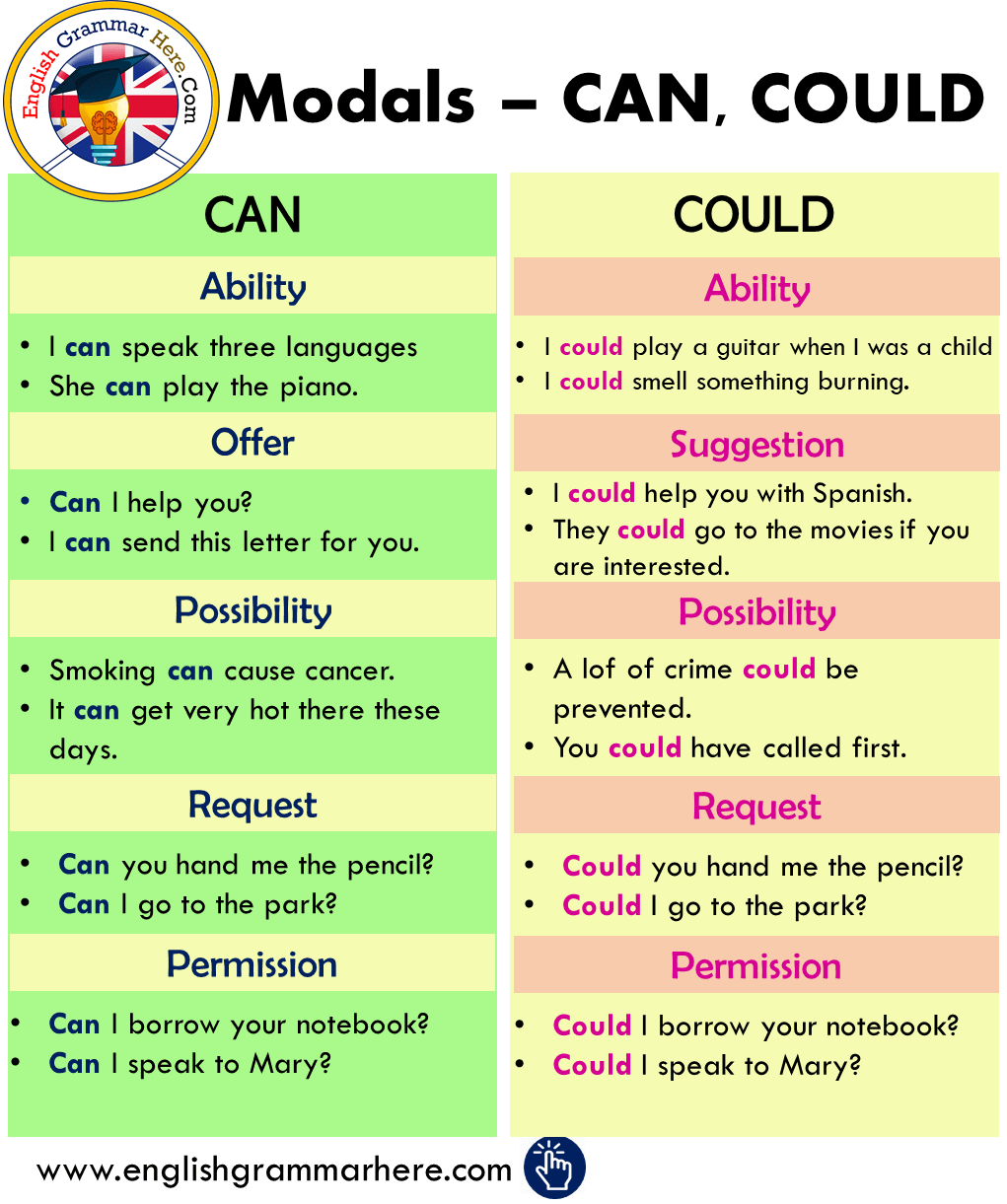


The meaning of modal verbs varies with the context. Observe the meanings in the following sentences where the modal verbs indicate varying degrees of certainty. “Every Saturday he would work on his farm”).Sometimes, would may express repeated past actions or habits. “I will be happy to help with the dishes.”.Will and Would may be used to express willingness. “Andy must study harder to improve his grades, according to his teacher.”.“Andy should study harder if he wants to get good grades”.Note the sense of obligation in these two sentences: Should and Must are used to express suggestion or a sense of duty. “I might attend the wedding” (suggests that you don’t).

“I may attend the wedding if I can find my favorite shoe” (suggests that you do want to attend the wedding) whereas.May and might are used to express possibility both are used where the possibility exists as far as you know, with might often suggesting a lower probability. Gretchen could draw beautifully when she was a child but now she says she can’t draw at all.“If Andy can swim, he will accept the swimming invitation.Could, however, is the past tense of can. The chart below outlines which Modal verbs are used to express a particular concept. Modal verbs cannot stand alone they are usually combined with a verb group to convey important nuances of meaning, such as wishes, permission or prohibition, intent or willingness, obligation or necessity, ability or possibility, probability, and certainty. These verbs indicate the attitude towards what we are saying. Modal Auxiliary Verb (also called Modal Verb, or Modal Auxiliary) is a type of verb Opens in new window that is combined with another verb to express certainty, ability, intention, necessity, obligation, opinion, permission, possibility, probability, prohibition, and speculation etc. Interpretation of Verb's Action on Object.Subject-Verb Agreement: The Fundamentals.Essential vs Nonessential Appositive Phrases.Prepositions & Thematic Roles Relationship.Comparative/Superlative for Irregular Adjectives.Comparative/Superlative Degrees of Comparison.


 0 kommentar(er)
0 kommentar(er)
